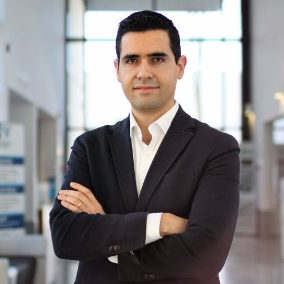Serious Games and Applications for Health (SeGAH 2017)
A special issue of Information (ISSN 2078-2489). This special issue belongs to the section "Information and Communications Technology".
Deadline for manuscript submissions: closed (16 February 2018) | Viewed by 27219
Special Issue Editors
Interests: electronics; biomedical instrumentation; artificial intelligence
Special Issues, Collections and Topics in MDPI journals
Interests: technology enhanced learning; educational leadership; learning analytics; online learning; educational games
2. 2Ai—School of Technology, IPCA, Barcelos, Portugal
Interests: cognitive systems; informatics; serious games
Special Issues, Collections and Topics in MDPI journals
Interests: medical electronics; medical robotics; biomedical imaging; artificial intelligence
Special Issues, Collections and Topics in MDPI journals
Special Issue Information
Dear Colleagues,
The overall objectives of SeGAH 2017 are the discussion and sharing of knowledge, experiences and scientific and technical results, related to state-of-the-art solutions, technologies and applications of serious games in health and healthcare, as well as the demonstration of advanced products and technologies for health. We believe that SeGAH which will be held in Perth, Australia, from 2–4 April, 2017, will further enlighten the audience of this conference which will effectively promote submission of more stimulating articles. Authors of SeGAH 2017 proceedings papers are therefore invited to submit extended versions of their papers with new input/angles to the Special Issue “Serious Games and Applications for Health” of the journal Information—Open Access Information Science Journal (I-OAISJ). However, authors interested in extending their conference papers must be aware that the final submitted manuscript must provide a minimum of 50% new content and not exceed 30% copy/paste from the proceedings paper. Each manuscript will be blind reviewed by I-OAISJ academic editors.
Prof. Nuno Dias
Prof. Sara de Freitas
Prof. Nuno Rodrigues
Prof. João L. Vilaça
Guest Editors
Manuscript Submission Information
Manuscripts should be submitted online at www.mdpi.com by registering and logging in to this website. Once you are registered, click here to go to the submission form. Manuscripts can be submitted until the deadline. All submissions that pass pre-check are peer-reviewed. Accepted papers will be published continuously in the journal (as soon as accepted) and will be listed together on the special issue website. Research articles, review articles as well as short communications are invited. For planned papers, a title and short abstract (about 100 words) can be sent to the Editorial Office for announcement on this website.
Submitted manuscripts should not have been published previously, nor be under consideration for publication elsewhere (except conference proceedings papers). All manuscripts are thoroughly refereed through a single-blind peer-review process. A guide for authors and other relevant information for submission of manuscripts is available on the Instructions for Authors page. Information is an international peer-reviewed open access monthly journal published by MDPI.
Please visit the Instructions for Authors page before submitting a manuscript. The Article Processing Charge (APC) for publication in this open access journal is 1600 CHF (Swiss Francs). Submitted papers should be well formatted and use good English. Authors may use MDPI's English editing service prior to publication or during author revisions.
Keywords
- Serious games
- Applications for health
- Virtual reality
- Wearable technology








